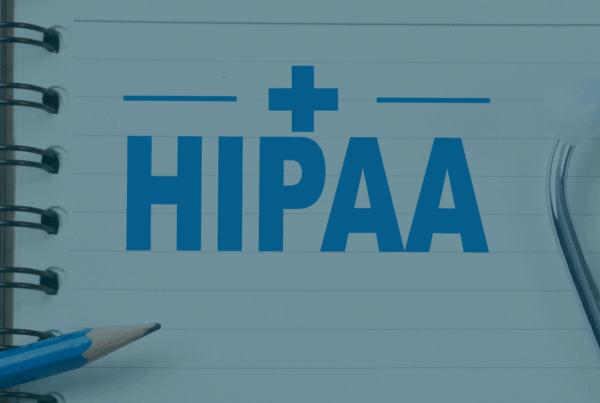In today’s fast-paced insurance industry, the desire for access to timely, efficient and reliable medical records is more critical than ever. Efficient management of insurance claims often hinges on timely acquisition and delivery of accurate medical records. Delays in this process have proven to hinder all parties involved in the case. At LCS Record Retrieval, we recognize the importance of streamlining the medical records retrieval process. Thus, ensuring and expediting insurance claims, minimizing delays, and providing a smooth, seamless and pleasing record retrieval experience.
How Efficient Record Retrieval Can Expedite Insurance Claims
After insurance claims are filed, the primary first step is to obtain the claimant’s medical records to assess the validity and scope of the claim. A key factor in determining this depends on the speed and accuracy of obtaining these records. The key factors in determining the efficiency of the record retrieval process include the following:
- Accelerated Claim Processing
- Reduction in Wait Times: Insurance adjusters and panel counsel, due to having quicker access to information, can quickly review the necessary medical information, leading to faster decisions and settlements. This not only benefits claimants, who receive decisions on their claims quicker, but also the insurance company, who can settle claims faster and reduce unnecessary costs. Hence, mitigating overall risk and exposure to claims.
- Minimized Errors: Outsourcing the record retrieval process yields an efficient and proven record retrieval method, which reduces the risk of time delays, inefficiencies, errors and lack of strategy in pursuing the records. By ensuring that the appropriate documents are obtained and suitably processed, you lower the need to correct errors later in the record retrieval process.
- Consistency: Establishing a proven system guarantees not only timeliness, efficiency and accuracy of records, it also enables and promotes consistency in the record retrieval process which can be implemented and duplicated from claim-to-claim.
- Enhanced Client Satisfaction
- Improved Communication: When records are retrieved efficiently, it promotes enhanced communication among all parties involved. Claimants are informed and adjusters have the necessary information they need to make decisions.
- Trust and Reliability: Insurance companies that consistently deliver on their claim obligations build better trust with their clients. Efficient record retrieval plays a key role in maintaining this trust by demonstrating a commitment to professionalism, sustainability, process-oriented delivery and reliability.
- Cost-Effective Operations
- Lower Administrative Costs: Streamlined record retrieval processes reduce the need for extensive follow-ups and unnecessary administrative follow-up. This minimizes costs while saving time associated with current industry standard of prolonged claims processing timelines.
- Optimized Resource Allocation: With efficient systems in place, insurance companies can allocate resources more effectively and efficiently, focusing on other vital areas of operations (i.e., client services, fraud prevention, risk management, etc.).
The Impact of Delays in Medical Record Retrieval on Insurance Processes
While efficient medical records retrieval can significantly enhance the insurance claims process, delays in the process show negative effects. Some of those impacts are as follows:
- Prolonged Claim Settlements
- Increased Wait Times: Delays in obtaining medical records often result in longer processing times for claims. This can be frustrating for claimants anxiously awaiting settlement outcomes. Furthermore, unnecessary and excessive delays in the record retrieval process can cause trust and confidence in the insurance provider.
- Legal Complications: In some cases, delays can lead to legal disputes, particularly if a claimant feels that the insurance company was not acting in good faith. This can result in unnecessary and costly litigation that can damage the insurance company’s reputation.
- Higher Costs
- Rising Administrative Expenses: Insurance companies almost always experience additional administrative costs (i.e., time, financial), when the record retrieval process is delayed. This results in unnecessary and often excessive follow-ups resulting in additional processing time.
- Potential for Increased Payouts: Unnecessary delays often also lead to increased late settlement payouts if interest or penalties are applied. This is particularly true in jurisdictions where prompt payment laws are in effect.
- Strained Relationships
- Client Dissatisfaction: Claimants who experience delays in processing their insurance claims become dissatisfied with the service, leading to negative reviews, decrease in business, and a damaged reputation.
- Partner Frustration: Insurance companies frequently work with a network of partners, including medical providers, attorneys, and third-party administrators. Retrieval delays in records can affect these relationships, potentially leading to difficulties in future collaborations or business opportunities.
Conclusion
At LCS Record Retrieval, we recognize the critical role efficient medical records retrieval plays in the insurance claims process. By streamlining this process, LCS helps insurance companies expedite claims by developing and implementing a repeatable record retrieval strategy, reducing costs, improving efficiencies and enhancing client satisfaction. Conversely, unnecessary delays in medical record retrieval often significantly and negatively impact the insurance carrier’s ability to manage and reduce risk and exposure of their claims. Finally, prolonged settlements and increased costs can cause strained relationships with business partners and give rise to other legal complications or liabilities.
LCS Record Retrieval is committed to expertise and excellence. LCS Record Retrieval provides a reliable, efficient service today’s insurance carriers can rely on. At LCS, our primary objective is to ensure that every claim is processed as quickly and accurately as possible, benefiting both insurers and claimants.







